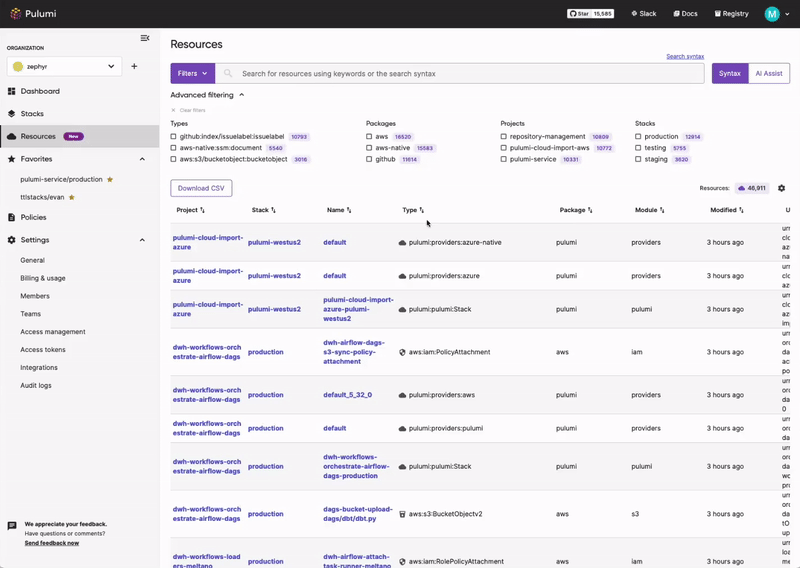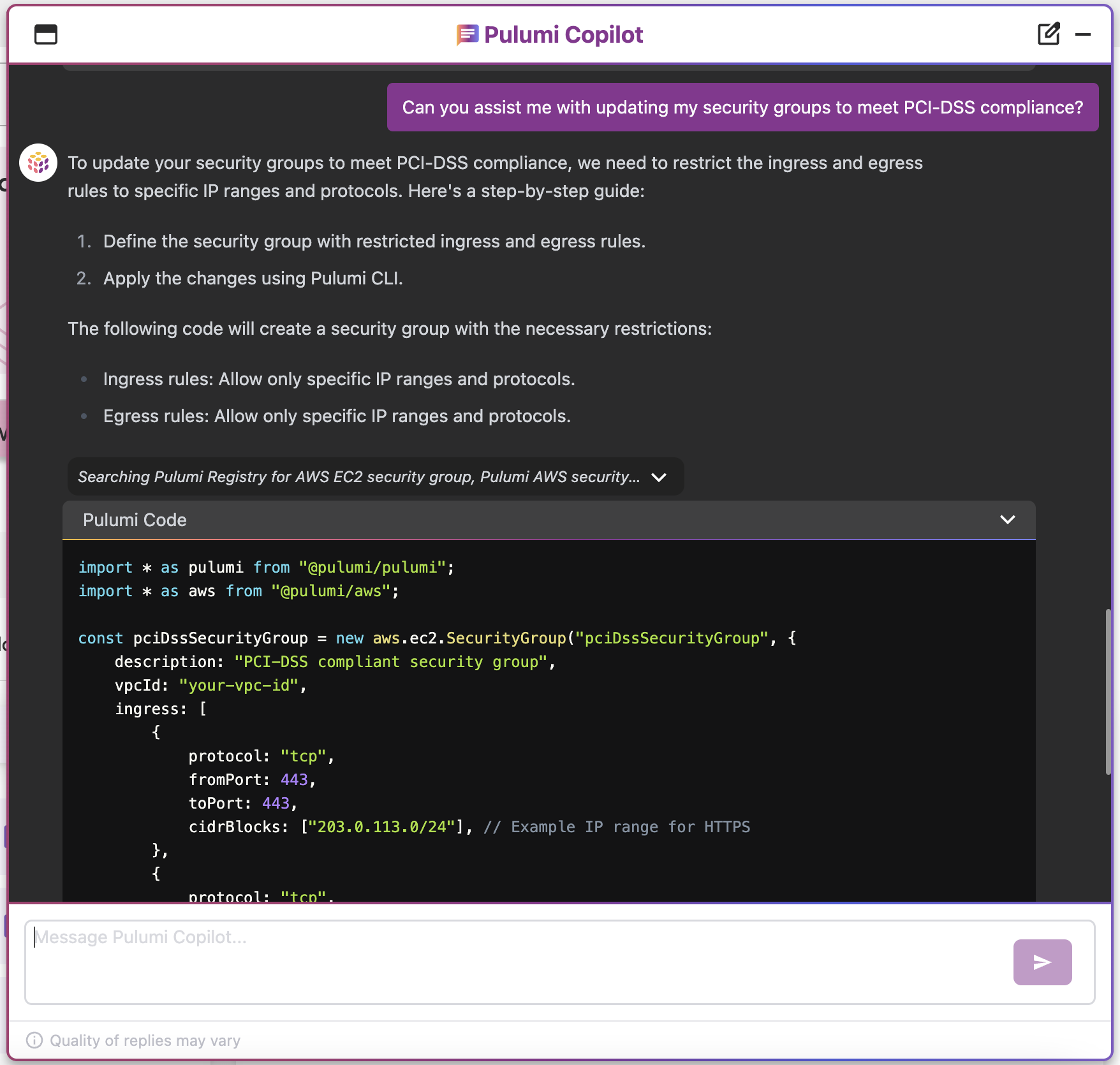How to Achieve ISO 27001 Compliance for Azure ACI
How to Achieve ISO 27001 Compliance for Azure ACI
ISO 27001 compliance is essential for ensuring the security and management of sensitive information across your organization. Pulumi can assist you in making your Azure infrastructure ISO 27001 compliant. Pulumi can help you identify existing cloud resources that are not in compliance, and it can also enforce compliance policies proactively before infrastructure is deployed. Get started with Pulumi to use these compliance tools or speak with a Solutions Architect to get an expert consultation.
What is ISO 27001 Compliance?
ISO 27001 is an internationally recognized standard for establishing, implementing, maintaining, and continually improving an information security management system (ISMS). It helps organizations protect sensitive data by providing a risk-based approach, ensuring that security measures are proportionate to the risks faced. ISO 27001 is based around the following 3 pillars: confidentiality, integrity, and availability. By achieving ISO 27001 certification, organizations demonstrate their commitment to robust information security practices and regulatory compliance.
Key Aspects of ISO 27001 Compliance
- Risk Management: ISO 27001 requires organizations to assess risks related to their information assets and implement controls to mitigate these risks.
- Security Controls: The standard includes a comprehensive set of security controls (outlined in Annex A) that cover areas like access control, cryptography, physical security, and incident management.
- ISMS Implementation: Organizations must establish an ISMS, which is a systematic approach to managing sensitive company information so that it remains secure. This involves setting policies, procedures, and controls.
- Continuous Improvement: ISO 27001 emphasizes the importance of continually monitoring, reviewing, and improving the ISMS to adapt to changing security risks and business needs.
- Compliance and Certification: Organizations can seek certification to ISO 27001 by undergoing an external audit conducted by a certification body. Certification demonstrates that an organization has implemented best practices for information security management.
- Legal and Regulatory Requirements: ISO 27001 helps organizations comply with legal, regulatory, and contractual obligations related to information security.
Pulumi Insights
Use Pulumi Insights to gain visibility into your cloud infrastructure's configuration to assess ISO 27001 compliance. Pulumi Insights is Intelligent Cloud Management. It helps you gain security, compliance, and cost insights into the entirety of your organization's cloud assets and automatically remediate issues.

Pulumi Copilot
Use Pulumi Copilot to assist configuring your infrastructure to make it compliance ready. You can tap into the Pulumi Copilot's deep understanding of your organization's context to gain visibility into the configuration of resources and assess their compliance.

Compliance Ready Policies
With comprehensive coverage of Azure, Pulumi Compliance Ready Policies provide an enhanced level of control and governance over your cloud resources. Pulumi Compliance Ready Policies empower you to enforce best practices, security standards, cost controls, and compliance requirements seamlessly within your infrastructure-as-code workflows.
What is Azure Container Instances (ACI)?
Azure Container Instances (ACI) allows developers to quickly run containers in a serverless environment without managing underlying infrastructure. It provides a simple, scalable platform for running containerized applications on demand, supporting both Linux and Windows containers.
What controls can I put in place to evaluate Azure Container Instances (ACI) resources?
- Azure Container Instances (ACI) should use secure networking modes and user definitions
- ACI containers should not have public IP addresses assigned to them automatically
- ACI containers should not share the host's process namespace
- ACI containers should run as non-privileged
- ACI containers should be limited to read-only access to root filesystems
- Secrets should not be passed as container environment variables
- ACI containers should have a logging configuration
- ACI instances should run on the latest platform features provided by Azure
- Azure Monitor should be used to enable Container Insights
- ACI containers should be tagged
- ACI resource groups should be tagged
- ACI deployments should be tagged
Speak to a Solutions Architect to implement policy as code to manage ACI resources for ISO 27001 compliance.
Talk to a Solutions Architect
Get in touch with our Solutions Architects to get all your resources in use with Pulumi Insights